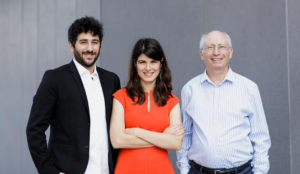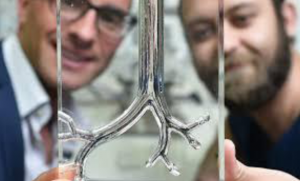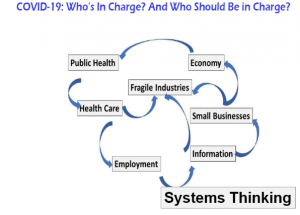The entire world is facing a social, medical, economic and political crisis of proportions greater than that of the Great Depression, 1930-39. What are the skills and qualities that can help each of us tide over the prevailing crises?
In a webinar organised as part of the Covid-19 preparedness series by Max Institute of Healthcare Management at the Indian School of Business in association with ISB Centre for Business Markets and Equitable Healthcare Access Consortium on May 26, I talked about the essential qualities of innovators that have come to the fore in the face of Covid-19 pandemic; how scientists and engineers could help meet currently unmet needs through resources at hand and shared stories of innovation under pressure from Israel.
Ever since the advent of Covid-19 pandemic, innovators have exhibited three essential qualities: flexibility, agility and resilience. Flexibility is the quality of bending without breaking; agility is the ability to think, understand, adapt and move quickly in response to challenge and having an ability to pivot; and lastly, resilience connotes to the capacity to recover quickly from failure and decline. We can go FAR despite the crisis if we can learn to acquire and cultivate these qualities.
Israel is a small embattled nation which has skilled at improvising and embedding in its national DNA and culture the optimum utilization of resources at hand, in a short span of time. This has been evident in the face of the ongoing Covid-19 pandemic. We have seen several stories of innovation under pressure here.
Do you remember the Mumbai floods of 2017? Even when public transportation was shut down, people strode through the flooded water in order to reach their offices or work. This was an inspiring exhibition of resilience by the Indians. Similarly, when a typhoon strikes, do you see palm trees bending? We all should emulate the flexibility of palm trees when facing a crisis.
Diagnostic Robotics, an Israeli startup founded by (L-R in the picture below) Yonatan Amir, Dr. Kira Radinsky (both Technion alums) and Prof. Moshe Shoham (Technion), aims at tackling embattled emergency rooms in hospitals. It uses artificial intelligence to predict the patient load and to prepare the hospital in advance in order to ease or manage the load. As per media reports, this system is now integrated with the Ministry of Health, Israel. The startup adopted the ‘turn-on-a-dime pivot’ i.e. it improved an existing product or service for different use.

The Chinese entrepreneur Jack Ma (picture below), the founder of Alibaba, also emerged as a champion in crisis. Alibaba sells its products worldwide despite Ma being untrained in technical skills or knowledge. When Alibaba was just four years old, an Alibaba employee was diagnosed with SARS, in the spring of 2003. The entire Alibaba office was placed under quarantine. It was during this time that the viability of Alibaba was threatened, and Ma decided to use the crisis to take on (what he perceived) to be Alibaba’s biggest threat: the giant eBay. Ma knew that eBay was a shark in the ocean, but he identified that it wasn’t fully familiar with the Chinese culture and markets. That’s where Alibaba stepped up.

Technion Biomedical Engineering faculty researchers (picture below), Dr. Josué Sznitman and Dr. Yan Ostrovski had been working for years on a way to help premature babies who have acute respiratory distress syndrome (ARDS) to breathe better and recover. The problem was the lack of surfactant which is crucial for the lungs’ functioning. Sznitman noted that for 30 years, we have known that injecting surfactant directly into neonates’ (preemies’) lungs greatly helps their lungs function. He wondered why not inject the surfactant into the lungs of COVID-19 patients? Based on this pretext, preclinical trials are all set to begin next month with the surfactant-turned foam. This idea is particularly important given the low rate of survival of Covid-19 patients suffering from breathing difficulties.

There is considerable research showing that market leadership and market share change far more during economic downturns than during economic booms. It is likely that this will also be the case with the current pandemic. Many organisations, especially large ones, fasten their seat belts and ‘hunker down’, slashing spending and waiting for the good times to return. This leaves opportunities and openings for flexible, agile smaller companies to take some risks, invest in R&D, pivot their focus and try to meet the unmet needs based on their unique technologies and innovations.

Both Israel and India are nations that have experienced many crises, natural disasters and even wars. The people of both countries have developed resilience in an evolutionary manner; in the same way, as nature helps plants and animals adapt to threats and changing environments. Social resilience, defined as the capacity of a society to prepare, contain and manage major national crises and to bounce back expeditiously to an enhanced functioning, remains the most important outcome. When emerging from a failure, setback, crisis or disaster, the aspiration should always be to achieve a higher level of wellbeing and performance, not just to return to the old benchmark. Some nations will do better than others, just as some organisations will do far better than others. Those who prosper are those who will go FAR – who martial flexibility, agility and resilience.
(This article is written by Prof. Shlomo Maital, Emeritus Professor and Head of Zvi Griliches Research Data Center at the Samuel Neaman Institute for Advanced Studies in Science & Technology, Technion-Israel Institute of Technology basis the webinar of the same title. The full recording of the webinar is available here.)

